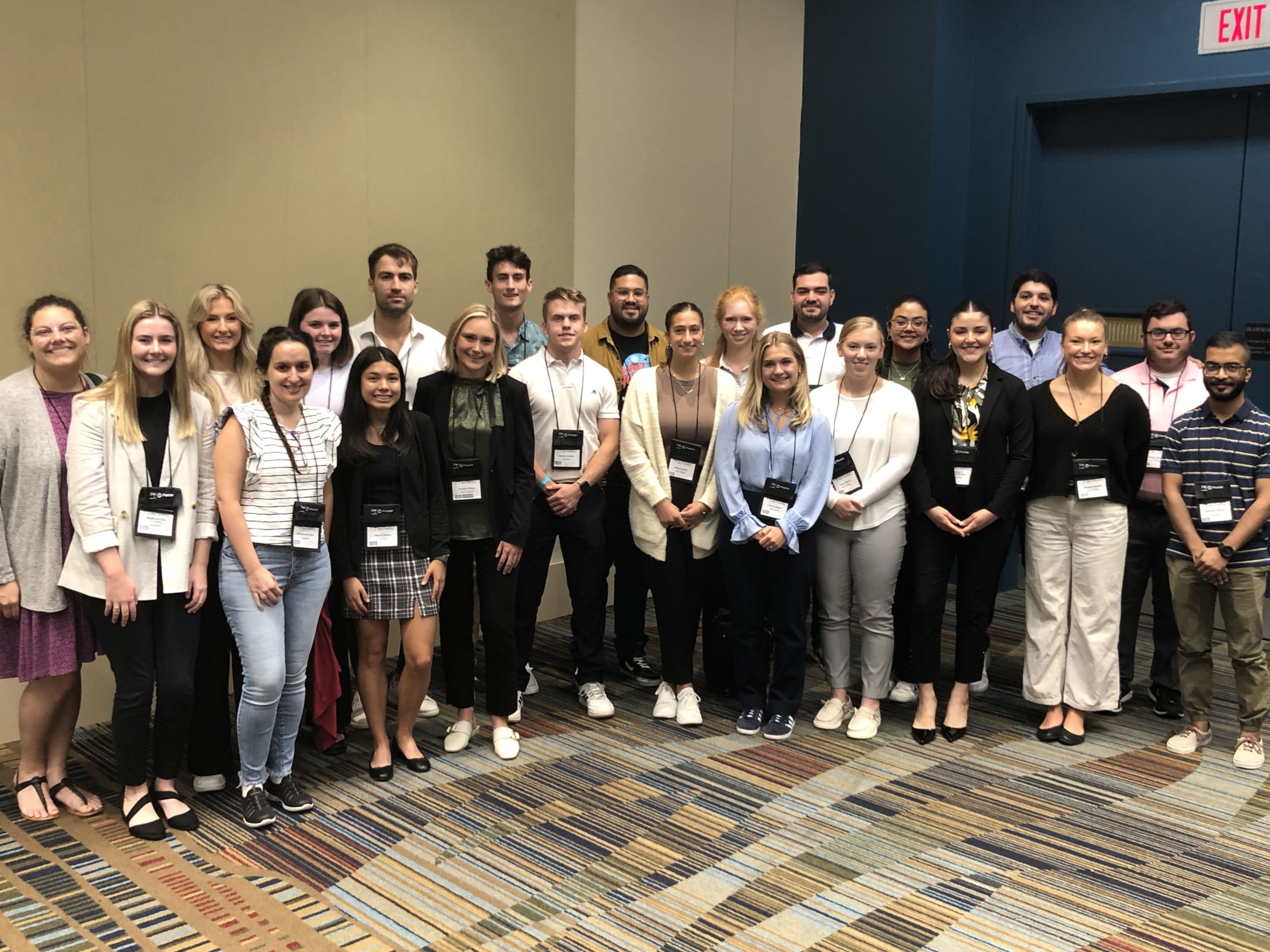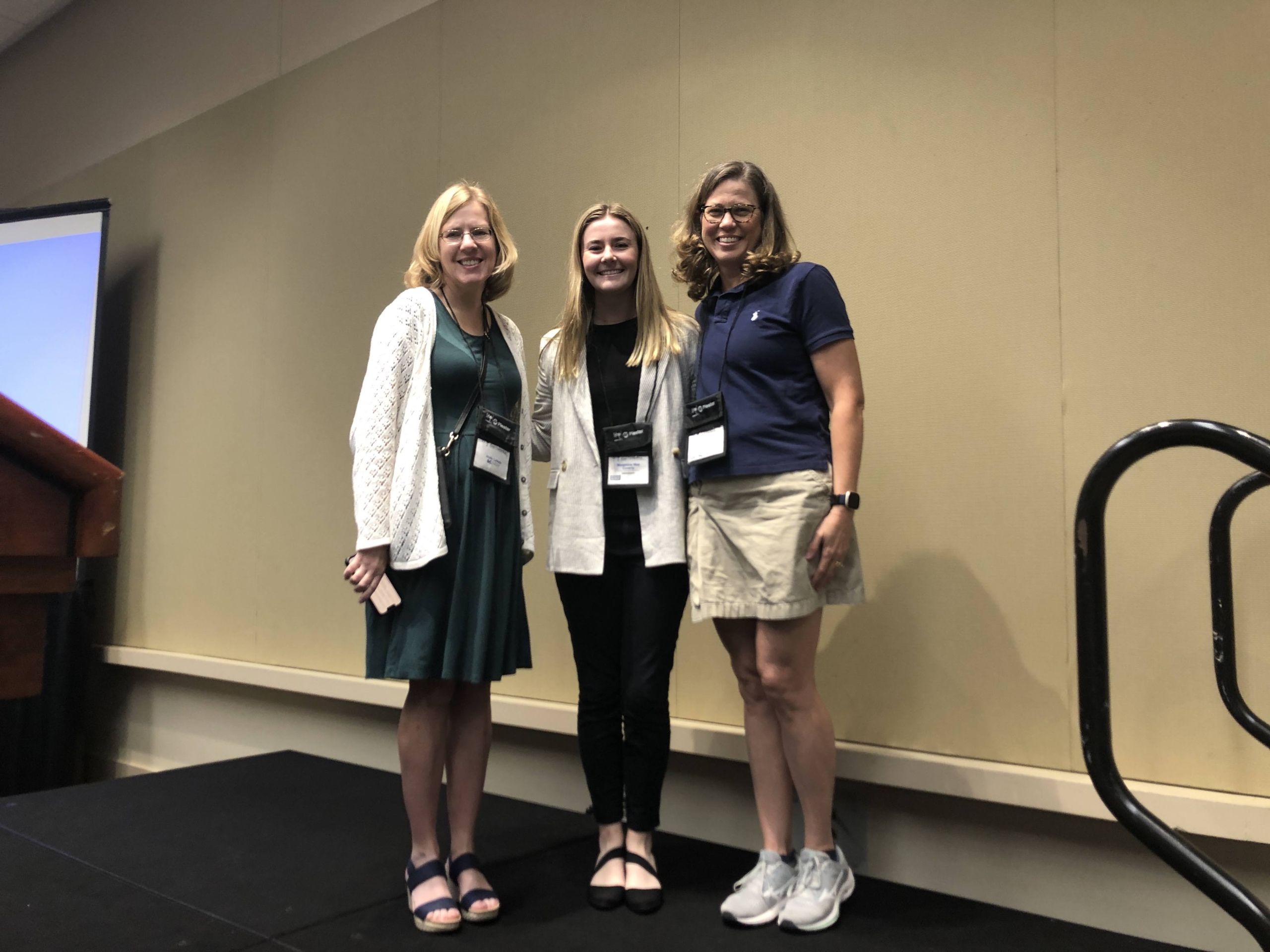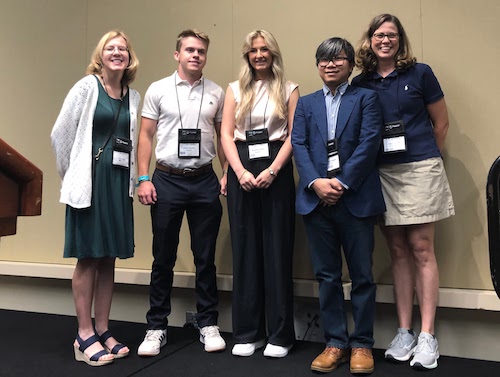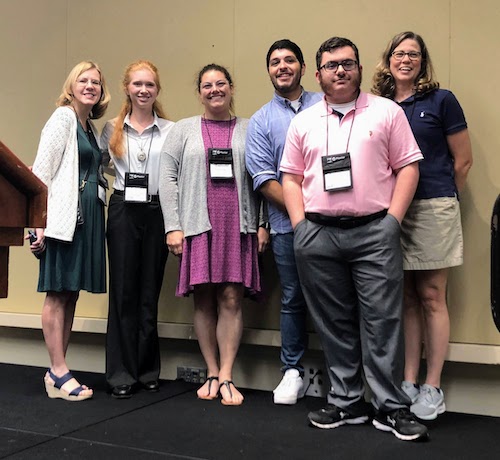 Four undergraduates supported by the Mississippi IDeA Network of Biomedical Research Excellence (MS-INBRE) placed in the research poster competition at the 2023 Southeast Regional IDeA Conference (SEIDeA23), held in South Carolina this September. Of those who placed, one student was even honored as the highest scoring undergraduate in the entire Southeast U.S. region.
Four undergraduates supported by the Mississippi IDeA Network of Biomedical Research Excellence (MS-INBRE) placed in the research poster competition at the 2023 Southeast Regional IDeA Conference (SEIDeA23), held in South Carolina this September. Of those who placed, one student was even honored as the highest scoring undergraduate in the entire Southeast U.S. region.
SEIDeA is an annual biomedical research conference where the highest achieving students from INBRE programs across the Southeast U.S. compete in a poster competition. Over 150 students from seven states and territories competed in the competition, divided into 14 categories ranging from bioengineering to neuroscience. Of the 14 categories, MS-INBRE students placed first in two.
Madeleine Conerly, MS-INBRE Research Scholar and Junior at Mississippi State University, won first place in the Molecular and Cell Biology category. Her research poster scored the highest of all undergraduates who competed in the competition.

Conerly (middle) shortly after being presented with her award.
Conerly’s research investigated how genetics contribute to the likelihood of developing chronic kidney disease. Through an internship offered by MS-INBRE, the MS-INBRE Research Scholars program (MIRS), Conerly spent her summer researching the disease at the University of Mississippi Medical Center (UMMC) in Jackson. She says the support given to her through the program was crucial to her success.
“This was my first time ever participating in research, and my win would not have been possible without the opportunity presented by MS-INBRE,” said Conerly, “I am very thankful for the incredible mentors and supporters I’ve had throughout this process.”
When asked what the secret to her presentation success is, Conerly said her MIRS mentor, Dr. Michael Garrett, professor of pharmacology and toxicology at UMMC, gave her the best advice.
“As Dr. Garrett told me numerous times, ‘tell your research in chronological order, like a story,’” explained Conerly, “This was something he impressed upon me after observing some researchers jump around on their poster instead of following a linear path.”
MIRS Scholar Madeline Harris, a Junior at the University of Mississippi (UM), also researched at UMMC this summer. She won first place in the neuroscience category. Her research studied the link between pre-eclampsia and the likelihood of having a severe stroke in adulthood. A passionate go-getter, Harris was on the road back to Oxford to prepare for mid-term exams when she received the news.

Harris stands next to her research poster at the conference.
Harris said, “Unfortunately, I was not able to attend the Awards Ceremony due to a 10-hour drive back to Oxford, but I was very excited to hear that I had placed first in the neuroscience category. I could not have been happier.”
A Senior at UM, MIRS Scholar Makenzie Havard won honorable mention in the neuroscience division. She researched the role the Dunc13 protein plays in alcohol tolerance at a UM research lab. While Havard had the usual jitters most have before an important presentation, she says her enthusiasm for her research energized and even excited her to do well.

Havard (middle) poses for a picture with fellow neuroscience division winners.
Havard said, “I am usually nervous of presentations, but I found that once I was standing by my poster, I was more excited than anxious. When you are interested in what you are talking about, it rubs off on whoever is listening.”
Sarah Crowsey, Senior at William Carey University (WCU), won second place in the chemistry and biochemistry division at the conference. Having won second place overall in the poster competition at the MS-INBRE-hosted Mississippi IDeA/EPSCoR Conference in July, she’s been on a winning streak. She says support from MS-INBRE contributed greatly to her success.

Crowsey (second from left) poses for a picture with fellow division winners.
Crowsey explains, “Mississippi INBRE support was absolutely important through my entire research process. I was fortunate enough to meet some of the INBRE staff at USM. Dr. Lindner in the Imaging Core was particularly helpful during my work by providing lab access, training on equipment and guidance on experimental design. I was also able to use some of the INBRE imaging equipment throughout the research process, which helped me evaluate when things were working and when they weren’t.”
Crowsey’s summer research studied the use of bacteriophage coatings to prevent antibiotic-resistant bacterial films on polymer-based medical devices. She conducted her research at both USM and WCU.
Learn more about the MIRS Program
Learn more about SEIDeA23

